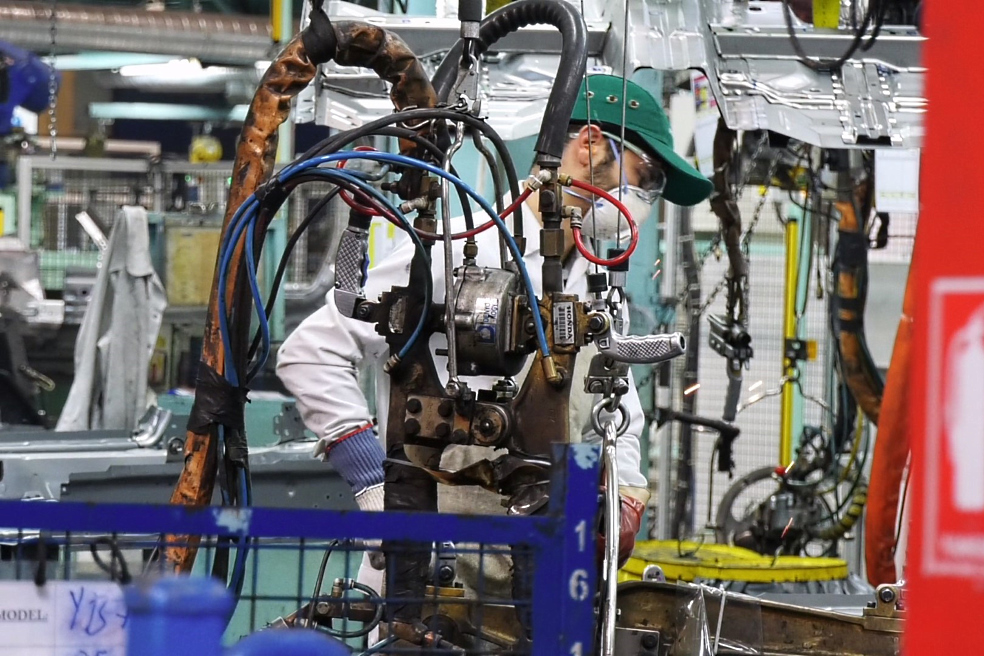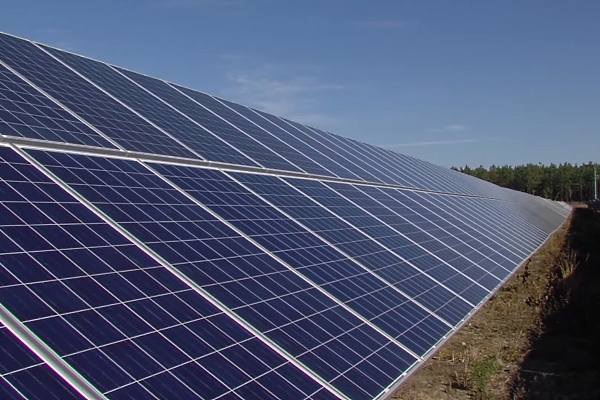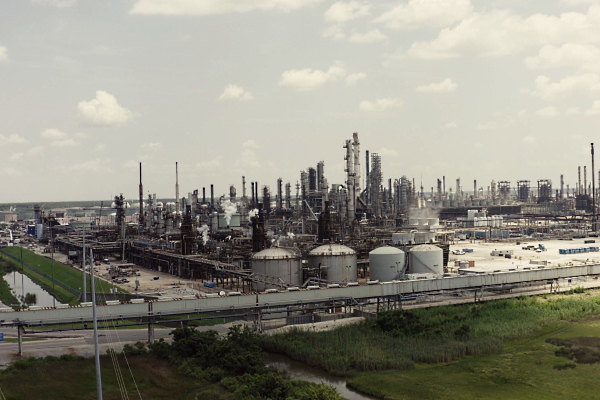To consider an application for financing, fill out the form and send it to us by e-mail along with the project brief, or contact our experts
Until today, the automotive sector generated more than 7% of the EU's gross domestic product, being one of the engines of the European economy. This sector employs up to 14 million workers and these jobs are now of great social importance to the region.
The automotive industry is closely related to sectors such as metallurgy, chemical industry, electronics, etc.
It should be remembered about the important scientific component of the automobile industry, which is a determining factor in the competitiveness and is characterized by huge expenditures on R&D.
In 2020, the automotive sector topped the ranking of European industries in terms of total research & development spending, reaching £58.8 billion.
Construction of car factories, modernization of existing facilities, research and development works and expansion of the dealer network require large investments.
Sources of funding for such projects can be long-term loans, leasing instruments, project finance, bond issuance, and others. However, the uncertain situation in the European economy makes traditional financing of large projects less accessible, which forces companies to look for more flexible solutions.
Choosing a reliable financial partner with large financial resources and broad competencies is critical for success in such capital-intensive industries as automotive manufacturing.
Sedona Investments, a company with international experience, offers financing of investment projects in the automotive industry in Europe and beyond. We provide long-term loans, project finance services, loan guarantees, and financial engineering services.
The European automotive industry is facing serious challenges
If at the beginning of 2022 the European automobile industry gradually recovered from the consequences of the pandemic, then in the second half of the year the prospects for the development of the sector became much darker.According to Euromonitor, sales in 2022 were expected to be around 78 million units, a 10% increase over 2021. But growth forecasts and investors' expectations were apparently undermined by the bloody war, rising hydrocarbon prices, increased spending by European households and an atmosphere of uncertainty about the future.
The automotive sector in Europe and around the world is still reeling from the pandemic, which is having a negative impact on car production and supply chains.
Most of the production of spare parts is localized in China, and there we still see lockdowns in cities and provinces.
This makes investment in the European automotive industry more uncertain and risky at this time.
But the most serious blow to the market was the war in Ukraine. It should be remembered that this caused a blockade of production, in particular, in Russian Federation, where large plants of Skoda and Renault were located. Russia is also responsible for 40% of global palladium production, which is widely used in semiconductors and catalysts. The situation could also affect a large part of the mining of nickel, which is important in the production of electric cars.
Before the war, Ukraine was responsible for up to 10% of the total need for wiring harnesses in the European automotive industry.
In addition, the war shook the world fuel market, causing gas station prices to skyrocket. Other transport-dependent industries experience a rebound effect, causing prices to rise and governments having to suppress inflation with ever-higher interest rates. This, together with the decline in the purchasing power of Europeans, is causing consumers to lose interest in new cars, as their financing becomes too expensive.
A general feeling of uncertainty about the future also contributes to postponing important purchase decisions.
The European car market is currently facing dangerous challenges, and experts are watching with concern how this situation will develop.
It is difficult to find unequivocal answers, although one thing is certain: for some players, revolutionary changes in the way of doing business are coming.
Investments in the electric car industry are in the focus of European business
The recent decision of the European Parliament to ban the registration of new cars with internal combustion engines after 2035 means one important thing for the industry.Those investors who have been waiting to start production of electric cars have already missed the best moment.

The popularity of electric cars is growing at an unprecedented rate. An estimated 6.4 million EVs and plug-in hybrids are expected to be sold in 2021, representing growth of more than 100%. This also accounts for 9% of all car sales last year.
According to Euromonitor, in 2026 global sales of electric vehicles will reach almost 20 million units and will account for 23% of the total number of cars sold on the market. This is facilitated not only by new international standards, but also by local initiatives that are changing the face of mobility. Paris, Barcelona and many other cities make life difficult for car owners, especially those with internal combustion engines.
More than 150 cities in Europe have already introduced laws favoring low-emission cars, and the trend is being seen around the world.
It is not surprising that electric brands are increasing their share in the structure of investments in the European automotive industry. The whole world is following this innovative path. Not only Tesla continues its successful model line, becoming the third most valuable car brand in the world.
Other examples include Nio, a Chinese rival to Tesla that is capitalizing on the boom in electric car sales in China.
It grew 150% last year and is likely to double this year.
Financing of ecological modernization of car factories on the rise
The growth of investments in factories dedicated to manufacturing EVs and batteries does not mean a complete victory over environmental threats.In particular, electric brands are blamed for the high level of emissions during production, which are up to 80% higher compared to the production of traditional diesel cars. Closing these gaps requires new investments in recycling technologies and the introduction of batteries that are more environmentally friendly.
Some hope is offered, for example, by the offers of the Chinese manufacturer BYD, which last year presented its Blade battery. This innovative technology is 50% more efficient, safer and avoids the use of environmentally and economically controversial metals, including cobalt and nickel.
Tesla is already discussing the use of these batteries with BYD, and Toyota has established a joint venture with Chinese company.
Polestar, Volvo's electric car brand, also has ideas for sustainable production of electric cars, including the use of recycled materials.
The transition to zero emissions is also a huge challenge for the trucking industry. 2021 was a good year for the industry, with road transport growing by around 10% and signs of recovery seen across the globe. However, the need for significant investment in hydrogen cells and electric batteries has a negative impact on the financial outlook for the industry.
The situation is complicated by the fact that only 5% of trucks in Europe, the leader in reducing emissions, are completely clean.
New approach to the development of the automotive industry
The above mentioned European restrictions on internal combustion engine cars introduced in big cities are only part of the desire of these cities to decongest the streets and get healthy air.Another element of this trend is the growing popularity of "shared mobility", which applies not only to cars, but also to electric scooters or bicycles. This may lead to reduced sales of new cars, but shared mobility is a trend worth paying attention to when making investment decisions.
On the one hand, we have less demand for new cars, and on the other hand, there is a clear trend towards better meeting the needs of car sharing companies.
However, this idea is still not as popular as businesses would like, especially in some fast-growing European economies.
For some investors, shared mobility is an opportunity, and for others a threat.
One thing to keep in mind when looking at the rise in production and popularity of electric cars is their performance and durability compared to traditional cars. Although electric cars do not have a significant advantage right now, many experts believe that they will have a longer life and better value retention indicators in the future.
This will mean a longer fleet life and greater profitability for transport companies as more of them choose to pay off their vehicles in the long term.
However, lower purchases will make consumers more dependent on services that will have to fill the gaps in EV manufacturers' revenue.
As in other high-tech industries, software add-ons and subscriptions are likely to become an important part of business models. For example, Tesla charges $10,000 for its "fully autonomous" app, which Elon Musk says could eventually cost as much as $100,000.
So, the potential for this type of innovation is significant, but the investment requirements are enormous.

Investment in European automotive retail is changing rapidly
It is worth paying attention to new trends in the car sales model.The pandemic trend of online shopping in Europe also applies to cars. Some brands are very actively developing this sales channel, platforms are being created that allow consumers to buy any car without leaving their seat.
Perhaps this means an imminent end to investment in traditional car dealerships.
An example would be Volvo's decision to announce that their new electric cars will be available exclusively online.
According to market analysts, Europe is on the verge of significant changes in the car distribution business model.
Existing car showrooms will turn into specialized complexes where you can see the car or drive it. But orders will be made only online, and cars will be delivered to the house by tow trucks, which is not something special today.
The current logistical problems and the long waiting period for a new car configured at the dealer are forcing more and more customers to buy cars "in stock", searching for them online in different parts of the country or even Europe.
This leads to a certain detachment of the results of car sales from the efficiency of showrooms or the sellers themselves.
In addition, it should be remembered that the increase in the number of electric cars sold will limit the profitability of authorized service centers over time, since electrics require less maintenance during inspections. Perhaps the development of hydrogen cars will change this, but the technology clearly lags behind in terms of supply and the necessary infrastructure.
As we can see, investment in the automotive industry in Europe is set to change significantly in the coming years.
The transition from internal combustion engines to electric cars, the introduction of hydrogen technology, the rapid development of autonomous driving and artificial intelligence, the gradual reduction of traditional car showrooms...
All these and many other factors must be taken into account when planning large investment projects.













